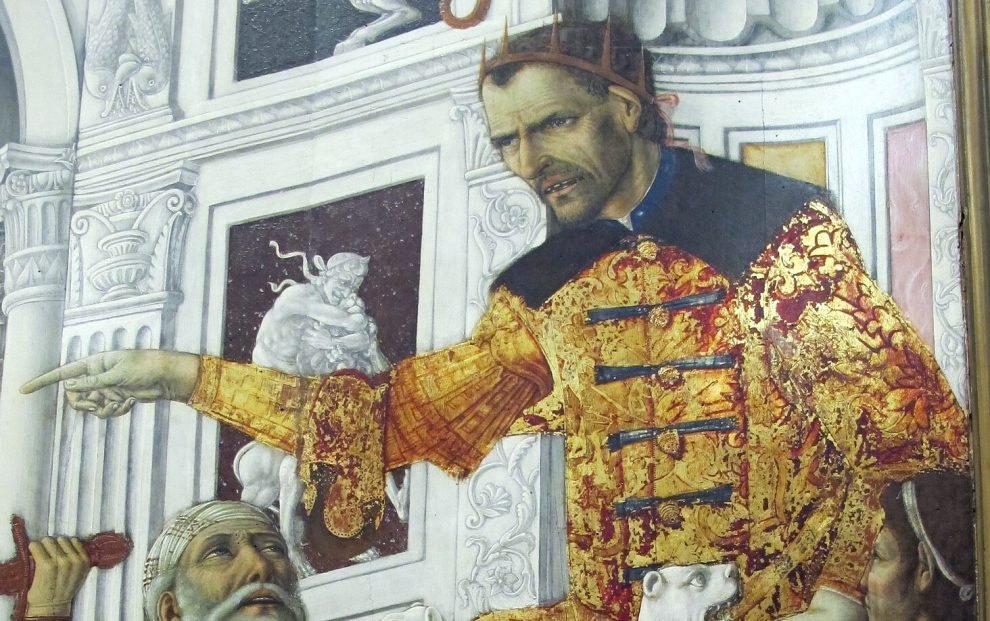The better question is: Who were the Herods? Five or six Herods governed around Palestine. Only two are of interest in the gospels. The name appears more than 40 times in the New Testament. Ten references concern King Herod the Great. He was the only Herod to control all of Palestine as an agent of the Roman Empire. Most biblical mentions, however, refer to Herod Antipas, son of the Great, never king but a governor of the northern territory.
The Herodians ruled a half century before the time of Jesus and continued for 150 years. Herod the Great ruled from 37 to 4 B.C.E. First-century historian Josephus describes him in Antiquities of the Jews as “so hard-hearted; and so very tender in the desire of government, and of other things that would tend to his glory.” Herod earned this reputation: He ruthlessly killed to ensure the security of his throne. His victims included a high priest, his sister’s husband, his wife and her mother, and later three of his sons. No additional records reference the slaughter of innocents Matthew attributes to Herod, but it’s in keeping with this king’s paranoia.
Herod the Great earned his “great” title as well with cultural improvements that remain among the most magnificent ruins in the Holy Land today. He restored to splendor the Second Temple of Jerusalem, rebuilt Samaria, enhanced the port of Caesarea Maritima, and enclosed Abraham’s tomb at Mamre—all for his own aggrandizement.
Though technically the king of the Jews, the Jewish people never quite accepted him, since he did not descend from the house of David. An ardent Hellenist, he removed Sadducean high priests and replaced them with Greek philosophers. Herod the Great would have been shrewd enough to ask the magi the time of the star’s appearance in order to calculate the age of a child born to replace him. Upon his death, this deeply unpopular king had a member of every great household murdered. This ensured that, even if no one wept for him, there would be mourning in the land.
In 4 B.C.E., the second biblical Herod, Antipas, inherited Galilee and Perea as a tetrarch or quarter-prince. He built his capital Tiberias on the sea not far from where future disciples would fish. Josephus describes Herod Antipas as proud, indolent, hostile, and sly. This Herod was responsible for the beheading of John the Baptist. The main sphere of Jesus’ original ministry is in Antipas’ territory. During his trial before Pilate, Jesus is shuttled off to Herod for judgment when Pilate learns that Jesus is a Galilean. Herod, believing Jesus was John the Baptist reincarnated, preferred him dead and returned Jesus to Pilate. The Emperor Caligula later exiled Herod Antipas to Lyons around 40 C.E.
When Acts mentions “Herod the King” this is likely Herod Agrippa—the Herod responsible for the death of Zebedee’s son and James and Peter’s arrest. Of this Herod too is reported a wormy demise.
This article also appears in the December 2024 issue of U.S. Catholic (Vol. 89, No. 12, page 49). Click here to subscribe to the magazine.
Image: Wikimedia Commons















Add comment